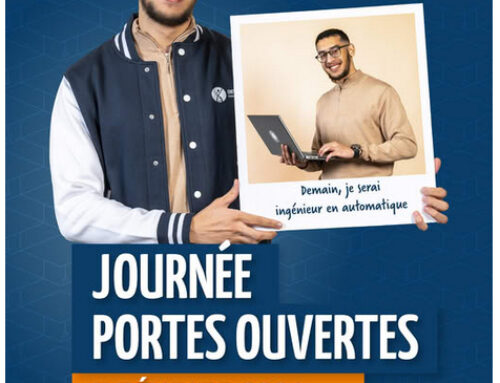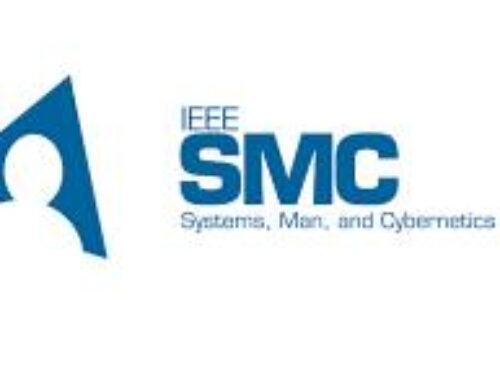Titre : Étude de la fidélité haptique pour la formation aux compétences motrices fines en réalité virtuelle
Mots-clés : Interaction Homme-Machine, Réalité Virtuelle, Fidélité Haptique, Compétences Motrices, Simulation Médicale
Contexte :
Ce stage s’inscrit dans l’axe de recherche du laboratoire IBISC sur la simulation chirurgicale, visant à améliorer la formation aux compétences motrices fines grâce à des technologies haptiques et des environnements immersifs en réalité virtuelle (VR). Ce projet est en adéquation avec l’expertise de l’équipe IRA², qui combine technologies haptiques et approches centrées utilisateur pour optimiser les résultats de formation des praticiens médicaux.
Problématique de Recherche :
Les compétences motrices fines, telles que celles requises en chirurgie, nécessitent précision, dextérité et retour tactile pour un apprentissage et une application efficaces. Bien que la réalité virtuelle (VR) propose des environnements immersifs de qualité pour la formation, l’absence de fidélité haptique appropriée— reproduction réaliste du toucher et du retour de force—limite son efficacité à reproduire les scénarios du monde réel. Les systèmes actuels de VR échouent souvent à fournir des retours tactiles et de force précis, essentiels pour développer ces compétences, créant ainsi un écart entre la formation et la performance en situation réelle.
Ce stage vise à combler cette lacune en explorant l’impact de différents niveaux de fidélité haptique sur l’acquisition des compétences motrices dans les simulations médicales en VR, et en évaluant le transfert des compétences acquises à des scénarios réels. Cette recherche cherche à répondre aux questions suivantes :
-
- Comment la fidélité haptique influence-t-elle la performance et la rétention des compétences des utilisateurs ?
- Quels sont les compromis entre complexité matérielle, fidélité et facilité d’utilisation dans les environnements de formation ?
Description des Travaux :
- Revue Bibliographique : Effectuer une revue approfondie de la littérature sur la fidélité haptique, la formation aux compétences motrices fines et les applications de la réalité virtuelle dans la simulation médicale.
- Conception et Développement : Participer à la conception et au développement de prototypes de scénarios de formation en VR intégrant différents niveaux de retour haptique en utilisant les ressources existantes du laboratoire (par ex., dispositifs haptiques, frameworks VR) et en concevant des interfaces physiques adaptées pour une interaction optimale.
- Évaluation Expérimentale : Réaliser des études utilisateurs pour évaluer les prototypes, en mesurant notamment l’efficacité des différents niveaux de fidélité haptique sur la performance des tâches, l’expérience utilisateur et le transfert des compétences.
- Analyse et Rapport des Données : Analyser les données expérimentales et fournir des recommandations pour améliorer les solutions de formation en VR.
- Publication : Publier les résultats dans une conférence nationale ou internationale, contribuant à la compréhension scientifique de la fidélité haptique dans la formation en VR.
Qualifications :
- Compétences Techniques : Solides compétences en programmation (par ex., C++, C#, Unity3D ou Unreal Engine), familiarité avec le développement en VR et connaissances de base en systèmes haptiques ou capteurs. Des compétences en mécatronique seraient un plus.
- Intérêt pour la Recherche : Grand intérêt pour la recherche, notamment dans les domaines de l’interaction homme-machine, la réalité virtuelle, la robotique et les applications médicales.
- Travail en Équipe : Excellente capacité à travailler en équipe pluridisciplinaire et à collaborer avec des chercheurs et ingénieurs.
- Profil Recherché : Étudiant(e) en Master en Informatique, Interaction Homme-Machine, Réalité Virtuelle, Robotique ou dans un domaine connexe.
Conditions de Travail :
Le stage se déroulera au sein de l’équipe IRA² du laboratoire IBISC, qui dispose d’une expertise reconnue en interaction homme-machine et en technologies de réalité virtuelle, particulièrement dans le domaine médical.
-
- Ressources : L’équipe met à disposition de nombreuses ressources, y compris des frameworks logiciels, des prototypes existants de VR et les résultats de projets précédents, afin d’accélérer les phases de conception et de développement.
- Plateforme Expérimentale : Accès à des équipements de pointe au sein de la plateforme EVR@, tels que des casques de réalité virtuelle (HMDs), des dispositifs haptiques, un système CAVE, des imprimantes 3D et d’autres interfaces.
- Environnement Collaboratif : Le/La stagiaire interagira régulièrement avec les doctorants, postdoctorants, ingénieurs de recherche et autres stagiaires de l’équipe.
Durée :
6 mois (de février à octobre 2025, selon la disponibilité du/de la stagiaire)
Rémunération :
- Indemnité légale minimale (~650 €/mois)
- Remboursement partiel des frais de transport
Contact :
Merci d’envoyer votre lettre de candidature, CV et relevés de notes de Master (M1/M2) à :
Amine CHELLALI
Aylen RICCA
Laboratoire IBISC EA 4526 – Équipe IRA²
Bâtiment Pelvoux 2, IUP, 40, Rue du Pelvoux, CE1455 Courcouronnes, 91020 ÉVRY, France
Site Web : https://www.ibisc.univ–evry.fr/ira2
Références:
- Wang, J., Chellali, A., Cao, C.G.L. (2015). Haptic Communication in Collaborative Virtual Environments. Human Factors, 58(3), 496-508, Sage Journals. [HAL]
- Benyahia, S., Nguyen, D.V., Chellali, A., Otmane, S. (2015). Designing the User Interface of a Virtual Needle Insertion Trainer. Proceedings of the International Conference of the Association Francophone d’Interaction Homme-Machine, IHM 2015, Toulouse, France. [HAL]
- Chellali, A., Mentis, H., Miller, A., Ahn, W., Arikatla, V.S. et al. (2016). Achieving Interface and Environment Fidelity in the Virtual Basic Laparoscopic Surgical Trainer. International Journal of Human-Computer Studies, 96, 22-37, Elsevier. [HAL]
- Cherif, I., Chellali, A., Babahenini, M.C., Simon, C., & Otmane, S. (2024). The Role of Haptic Feedback in Enhancing Basic Technical Skills Acquisition and Transfer in an Immersive Simulator: A User Study. Proceedings of IEEE Virtual Reality and 3D User Interfaces 2024 Conference (IEEE VR), 691-692. [HAL]
- Herfort, L., Brocas, E., Amelon, F.-X., Ricca, A., Chellali, A. (2022). Validation de l’aspect et du contenu d’un simulateur immersif pour la formation des opérateurs en anesthésie locorégionale échoguidée. IHM ’22: Proceedings of the 33rd Conference on l’Interaction Humain-Machine (IHM ’22), ACM, Article 8, 1–15. [HAL]
- Ricca, A., Chellali, A., & Otmane, S. (2021). Comparing Touch-Based and Head-Tracking Navigation Techniques in a Virtual Reality Biopsy Simulator. Virtual Reality, 25, 191-208. [HAL]
- Ricca, A., Chellali, A., Otmane, S. (2020). Influence of Hand Visualization on Tool-Based MotorSkills Training in an Immersive VR Simulator. Proceedings of IEEE International Symposium on Mixed and Augmented Reality 2020 Conference (ISMAR), 260-268. [HAL]
- Ricca, A., Chellali, A., Otmane, S. (2021). The Influence of Hand Visualization in Tool-Based MotorSkills Training: A Longitudinal Study. Proceedings of IEEE Virtual Reality and 3D User Interfaces 2021 Conference (IEEE VR), 103-112. [HAL]
- Simon, C., Herfort, L., & Chellali, A. (2022). Design and Evaluation of an Immersive UltrasoundGuided Locoregional Anesthesia Simulator. 2022 IEEE Conference on Virtual Reality and 3D User Interfaces Abstracts and Workshops (VRW), 445-449. [HAL]
Title: Study of Haptic Fidelity for Fine Motor Skills Training in Virtual Reality
Keywords: Human-Computer Interaction, Virtual Reality, Haptic Fidelity, Motor Skills, Medical Simulation
Context:
This internship is part of the research axis of the IBISC laboratory on surgical simulation, focusing on enhancing fine motor skills training through haptic and immersive virtual reality environments. The research aligns with the IRA² team’s expertise in combining haptic technologies with user-centered design approaches to improve training outcomes for medical practitioners.
Research Problematic:
Fine motor skills, such as those required in surgery, demand precision, dexterity, and tactile feedback for effective learning and application. While virtual reality (VR) offers high-quality immersive environments for training, the lack of appropriate haptic fidelity—realistic replication of touch and force feedback—limits its effectiveness in replicating real-world scenarios. Current VR systems often fail to provide the precise tactile and force feedback necessary for developing fine motor skills, resulting in a gap between training and real-life performance.
This internship aims to address this limitation by exploring how different levels of haptic fidelity impact motor skill acquisition in VR-based medical simulations and how to validate the transfer of skills from these simulators to real-world scenarios. The research seeks to answer:
-
- How does haptic fidelity influence users’ performance and skill retention?
- What are the trade-offs between hardware complexity, fidelity, and usability in training setups?
Work Description:
- Literature Review: Conduct an in-depth literature review on haptic fidelity, fine motor skill training, and virtual reality applications in medical simulation.
- Design and Development: Participate in the design and development of prototype VR training scenarios incorporating various levels of haptic feedback using existing lab resources (e.g., haptic devices, VR frameworks) and designing appropriate physical interfaces for optimal interaction.
- Experimental Evaluation: Conduct user studies to evaluate the prototypes. This includes assessing the effectiveness of different haptic fidelity levels on task performance, user experience, and skill transferability.
- Data Analysis and Reporting: Analyze the experimental data and provide actionable insights for improving VR training solutions.
- Publication: Publish the results in a national or international conference, contributing to the scientific community’s understanding of haptic fidelity in VR training.
Qualifications:
- Technical Skills: Strong programming skills (e.g., C++, C#, Unity3D, or Unreal Engine), familiarity with VR development, and basic knowledge of haptics or sensor-based systems. Skills in mechatronics will be appreciated.
- Research Interest: High level of interest in research, particularly in Human-Computer Interaction, Virtual Reality, Robotics, and medical applications.
- Teamwork: Excellent ability to work in a multidisciplinary team and collaborate with researchers and engineers.
- Preferred Background: Master’s student in Computer Science, Human-Computer Interaction, Virtual Reality, Robotics, or a related field.
Work Conditions:
The work will be done within the IRA² team at the IBISC Lab, which has a strong background in research on human-computer interaction and virtual reality technologies, especially for healthcare applications.
-
- Resources: The hosting team provides extensive resources, including software frameworks, existing VR prototypes, and outcomes from previous projects, to accelerate the early stages of the design and development phase.
- Experimental Platform: Access to state-of-the-art equipment at EVR@, including head-mounted displays (HMDs), haptic devices, a CAVE system, 3D printers, and other interfaces, ensures optimal conditions for development and experimentation phases.
- Collaborative Environment: The trainee will regularly interact with the team’s PhD students, postdocs, research engineers, and other trainees.
Duration:
6 months (from February to October 2025, depending on the trainee’s availability)
Compensation:
- Minimum legal compensation (~650€/month)
- Partial reimbursement of transportation costs
Contact:
Please send your application letter, CV, and Master transcripts (M1/M2) to:
Amine CHELLALI
Aylen RICCA
Laboratoire IBISC EA 4526 – Equipe IRA²
Bâtiment Pelvoux 2, IUP, 40, Rue du Pelvoux, CE1455 Courcouronnes, 91020 EVRY, France Website: https://www.ibisc.univ–evry.fr/ira2
References:
- Wang, J., Chellali, A., Cao, C.G.L. (2015). Haptic Communication in Collaborative Virtual Environments. Human Factors, 58(3), 496-508, Sage Journals. [HAL]
- Benyahia, S., Nguyen, D.V., Chellali, A., Otmane, S. (2015). Designing the User Interface of a Virtual Needle Insertion Trainer. Proceedings of the International Conference of the Association Francophone d’Interaction Homme-Machine, IHM 2015, Toulouse, France. [HAL]
- Chellali, A., Mentis, H., Miller, A., Ahn, W., Arikatla, V.S. et al. (2016). Achieving Interface and Environment Fidelity in the Virtual Basic Laparoscopic Surgical Trainer. International Journal of Human-Computer Studies, 96, 22-37, Elsevier. [HAL]
- Cherif, I., Chellali, A., Babahenini, M.C., Simon, C., & Otmane, S. (2024). The Role of Haptic Feedback in Enhancing Basic Technical Skills Acquisition and Transfer in an Immersive Simulator: A User Study. Proceedings of IEEE Virtual Reality and 3D User Interfaces 2024 Conference (IEEE VR), 691-692. [HAL]
- Herfort, L., Brocas, E., Amelon, F.-X., Ricca, A., Chellali, A. (2022). Validation de l’aspect et du contenu d’un simulateur immersif pour la formation des opérateurs en anesthésie locorégionale échoguidée. IHM ’22: Proceedings of the 33rd Conference on l’Interaction Humain-Machine (IHM ’22), ACM, Article 8, 1–15. [HAL]
- Ricca, A., Chellali, A., & Otmane, S. (2021). Comparing Touch-Based and Head-Tracking Navigation Techniques in a Virtual Reality Biopsy Simulator. Virtual Reality, 25, 191-208. [HAL]
- Ricca, A., Chellali, A., Otmane, S. (2020). Influence of Hand Visualization on Tool-Based MotorSkills Training in an Immersive VR Simulator. Proceedings of IEEE International Symposium on Mixed and Augmented Reality 2020 Conference (ISMAR), 260-268. [HAL]
- Ricca, A., Chellali, A., Otmane, S. (2021). The Influence of Hand Visualization in Tool-Based MotorSkills Training: A Longitudinal Study. Proceedings of IEEE Virtual Reality and 3D User Interfaces 2021 Conference (IEEE VR), 103-112. [HAL]
- Simon, C., Herfort, L., & Chellali, A. (2022). Design and Evaluation of an Immersive UltrasoundGuided Locoregional Anesthesia Simulator. 2022 IEEE Conference on Virtual Reality and 3D User Interfaces Abstracts and Workshops (VRW), 445-449. [HAL]
- Date de l’appel : 09/12/2024
- Statut de l’appel : Pourvu
- Contacts cotés IBISC : Aylen RICCA (MCF IUT Évry, IBISC équipe IRA2), Amine CHELLALI (MCF Univ. Evry, IBISC équipe IRA2) {aylen.ricca, amine.chellali}@univ-evry.fr
- Sujet de stage niveau Master 2 (format PDF)
- Web équipe IRA2





